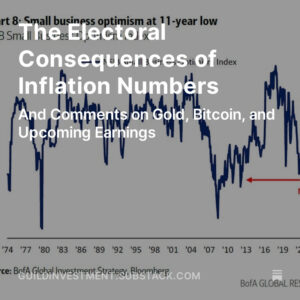Two Key Themes That Are Not Widely Known —
But Which Will Affect You and Your Life Substantially
Key Theme #1:
The Affordable Care Act (ACA) is going to change healthcare delivery in the U.S. in many ways… thus far, our research indicates that most of these changes are bad for the income of doctors, hospitals, and ethical pharmaceutical companies. Most of the changes will be good for generic pharmaceutical companies and for pharmacies.
In order to prepare for the ACA, we at GIM have spoken with numerous participants in the healthcare market — doctors, hospital administrators, and healthcare consultants who work with the U.S. and other nations to implement healthcare programs.
A few key points:
(1) 40 million new people will be added to the U.S. healthcare system due to the ACA. Question: Where are the doctors to treat these 40 million people? Answer: They don’t exist, so patients will be treated by more physicians’ assistants, RNs, LVNs, and nurse assistants– and more and more healthcare delivery (such as shots and vaccinations) will take place at pharmacies.
Already in California and many other states, more and more shots and vaccinations are being administered in these venues.
(2) The U.S. healthcare system is truly financially broke. When we add 40 million new people to whom healthcare will be delivered, we can expect the financial condition of the system to deteriorate further.
(3) Where will the money come from? Medicare is thought to have excess money, although it is underfunded. The requirements for those who have incomes above $200,000 per year to pay more of their own healthcare will rise. Within a few years, all who have incomes in excess of $200,000 per year will have to pay much, of their
healthcare costs even if they are over 65 years of age. (4) Our contacts predict that within a decade, a substantial percentage of all insured will be under a single-payer
system, and that system will be what we now call Medicaid. The cost of private insurance is already rising, and will continue to rise for the currently insured — as it becomes obvious that offering care to 40 million previously uninsured will greatly tax U.S. finances.
Care will not be as available as it has previously been to the majority of currently insured, and will cost more for the average consumer. This will force more into the Medicaid system, which will give a potentially lower quality of care than the insured currently enjoy.
Over time, U.S. healthcare will come to resemble more closely the socialized medicine of western Europe and Canada.
(5) Age limitations on operations… Over the longer-term (10 years plus), operations for joint replacements and even for terminal diseases will not be available through Medicare for those over 70 years of age. This may take the form of slowness and waiting lists, or just absolute refusal because of a patient’s age. This will be necessitated by the extremely high cost to keep people alive in the last 6 months of their lives. Countries who currently have single-payer healthcare delivery (also known as socialized medicine) do not provide resuscitation and/or
major operations to those over a certain age (this varies from country to country, but the cutoff averages about 70 years).
(6) Over time, more and more middle- and upper-income Americans will go abroad for medical treatments and operations — to India, Panama, Costa Rica, and many other countries which will become destinations for operations. Long waits will develop for operations in the U.S., and costs for private medical services will remain high — so many will opt to travel abroad for medical treatments.
(7) More and more drugs will be unavailable because of government edict. Many drugs will no longer be covered — first by Medicare and Medicaid, and eventually by private insurance plans… These will be drugs for rare diseases, as well as drugs for common diseases where the government has decided that a few drug options and more generics will suffice.
This process became clearer last Friday when the Obama administration proposed new edicts in this regard. Many more edicts and regulations from top down will take place in coming years. More individuals will have some healthcare insurance, but on average, domestic U.S. care will be less available and more expensive — and often unavailable to older Americans.
Please read the following article, which documents what is happening so far with the administration’s proposals for drugs prescribed for Medicare and Medicaid patients — Plan to Limit Some Drugs in Medicare Is Criticized (New York Times, Saturday, Feb 22). Our contacts tell us to assume that this trend will continue and grow — initially in government and eventually in private health systems as well. Our conclusion: Focus investment dollars on generic drug manufacturers and on pharmacies as healthcare delivery mechanisms.
Key Theme #2:
Deflation is not the problem ahead. Most likely the problem ahead is inflation. Deflation seems to be in the news these days, and most investors are convinced that deflation is the continuing
wave of the future. Fears of continuing deflation are causing many to continue to hold onto bonds, although they performed poorly last year, and they are keeping many investors from taking positions in base metals and food commodities.
We do not believe the conventional wisdom that commodity deflation will keep prices down this year. In fact, since last fall we have been carefully monitoring the charts of many commodities — food, base metals, and precious metals. Many of you know that gold bottomed on December 30, 2013. But how many of you have noticed that coffee has skyrocketed in price, and that sugar, soybeans, corn, wheat, and cotton have risen in price?
While it is in the news a that oil, natural gas, and heating oil are up, many attribute this to the current cold weather in the U.S. and parts of western Europe, and believe that demand and prices will fall when March arrives and the weather warms up in the northern hemisphere. We think energy prices could fall temporarily, but will rise longer-term, for several reasons:
1. The U.S. is engaged in a hands-off foreign policy in international affairs, which will decrease U.S. military expenses and increase political instability in the oil-producing regions of the world. Today, crises in Venezuela, Libya, Egypt, Syria, Iraq, and other oil-producing regions are decreasing oil production, and we believe that this is likely to continue or accelerate.
2. We believe that there are many warning signs of higher commodity prices in 2014. The drought in eastern Brazil and Argentina will decrease soybean, corn, dairy, and meat production from these countries and raise prices worldwide. And further, the demand for energy and the continued and growing political instability in the oil-producing regions of the Middle East makes it unlikely that big increases in oil production are possible from OPEC. Weather for the U.S. and European growing season will be uncertain, and should it not be highly supportive, world food commodities will rise in price throughout 2014.
3. Economic growth remains durable in China. Growth is modest in emerging Asia, and it is strengthening in Europe, the U.S. and Japan. GDP growth leads to higher incomes, and higher incomes lead to increased demand for gold, other precious metals, and foods.
4. Finally, we have mentioned for some time that massive QE taking place in many countries will create the fuel for inflation once the velocity of money speeds up in those nations. It is now the time in the economic cycle for the velocity of money to pick up.
In our opinion, inflation is the theme moving ahead in the U.S. — not deflation.
We have owned gold stocks, and have recently bought corn. We will buy more commodities if — as we suspect — this theme continues to play out.







